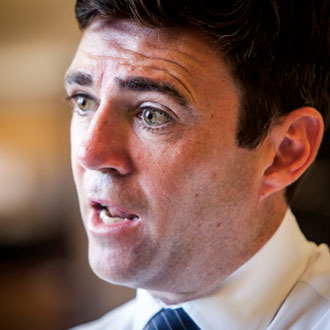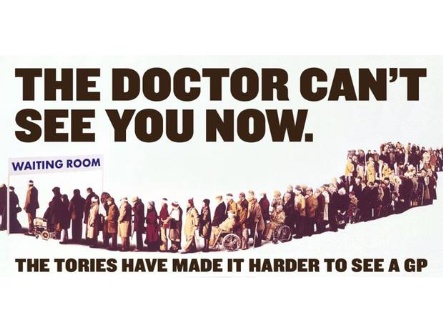Labour: ‘600 fewer practices’ offering extended hours under coalition

GP access has declined under the Coalition Government as almost 600 fewer practices are participating in the extended access enhanced service, the Labour Party has claimed.
Official statistics cited by the party showed that the proportion of GP practices taking up the DES in 2013/14 had fallen to 72%, compared to 77% when it was introduced in 2009.
According to Labour’s calculations, 590 fewer practices were offering appointments on weekday evenings or weekends compared with when the Coalition Government was formed in 2010.
The Department of Health contested the statistics which they said failed to account for practices offering extended hours access through the Prime Minister’s Challenge Fund. With the majority of these schemes not having started almost five months into 2014/15 these would not form part of the statistics quoted by Labour.
A Labour Party statement said: ‘Labour’s extended hours scheme enabled GP evening and weekend opening at 77% of surgeries by July 2009. Yet, David Cameron cut the scheme’s funding from £3.01 to £1.90 for every registered patient and removed the 48-hour appointment guarantee from the NHS Constitution – labelling it “no longer a priority”’.
Shadow health secretary Andy Burnham said: ‘After five years of David Cameron, patients at hundreds of surgeries can no longer get a GP appointment when they need one.
‘At the last election, he promised to open GP surgeries seven days a week but the reality is that millions more patients are unhappy with opening hours. It is now harder to get an appointment from Monday to Friday too.’

Responding to a parlimentary question, health minister Dr Daniel Poulter said: ‘In 2013/14 over 70% GP practices were recorded as taking part in the extended hours scheme meaning patients can access a GP outside core hours at a time that is more convenient for them.
‘As part of a separate scheme, over 1,100 practices are participating in the Prime Minister’s Challenge Fund looking at innovative ways of improving access to over 7.5 million patients and stimulating innovative ways of providing primary care services. More pilots will run in 2015/16 benefiting millions more patients.’
Commenting on the debate, RCGP chair Dr Maureen Baker said: ‘It goes without saying that access to GP services is extremely important, but prioritising evening and weekend access over everything else can mean that in-hours services suffer and patients often end up worse off.
‘Rather than putting more pressure on our already struggling workforce, politicians of all parties should focus on ensuring that general practice receives a much greater share of the NHS budget and that ambitions to boost GP numbers are realised.’
Pulse July survey
Take our July 2025 survey to potentially win £1.000 worth of tokens












